
Harmonizing the Disharmonious: Robert Coover and the MLC, Part III
To celebrate Robert Coover’s upcoming visit to Washington University for a Neureuther Library Lecture Series reading on November 1, 2016, we are highlighting Coover materials in the Modern Literature Collection. The following is the third of a three-part series.
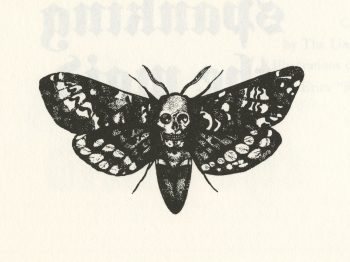
Robert Coover Speaks to the Unspeakable
In addition to performing cacophonous, polyvocal symphonies of human existence, Robert Coover‘s writing is invested in communing with the void, gesturing toward ineffable under layers of experience. Characters return to the same haunted spaces, again and again. The narrative pans out, then in, repeatedly, on the same scene. The reader peers in, closer, looking through these repetitions for some revelation Coover never gives.
As Coover tells us in this preface for The Water Pourer (a rare, unpublished chapter of The Origin of the Brunists): “The infinite is all we have. All narratives, like the universe, are explosive.”
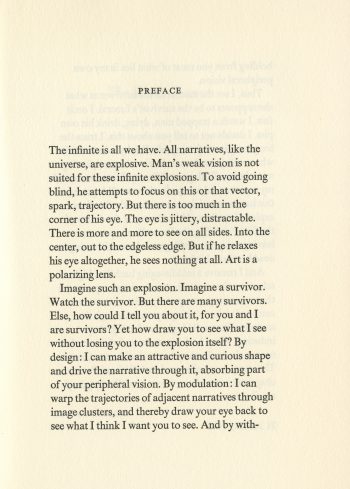
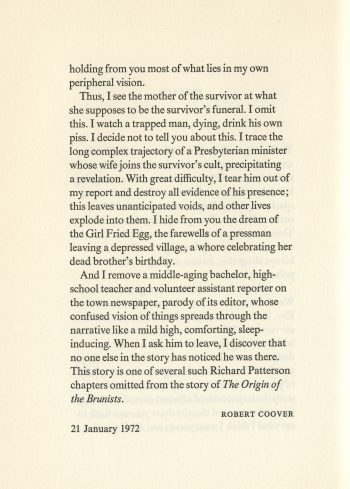
Herein, Coover speaks to the various extractions and elisions he makes when crafting a many layered story. There are always certain layers (like this one) which must be “asked to leave” in service to the book’s design: “an attractive and curious shape.”
Many of Coover’s pieces use their formal strictures as a means of accessing specific atmospheres of language. This kind of structuring is demonstrated in his screenplay After Lazarus.
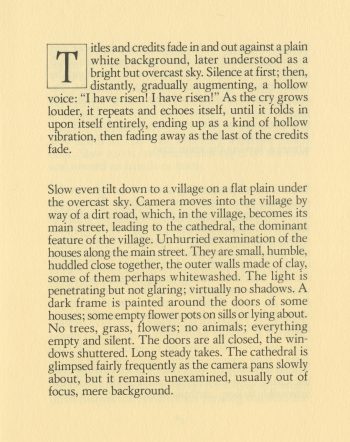
Through his directive descriptions–“Silence at first; then…”; “Slow tilt down”; “Unhurried examination,” the camera’s gaze embodies both narrator and reader. This telling framework generates a sense of disembodiment, of being simultaneously nowhere and everywhere.
Form generates a similarly estranged language in Love Scene, a short play in Coover’s anthology A Theological Position. Herein, an unseen “Voice” directs an unidentified cast of “They” in the action–and artful construction–of a porn film.
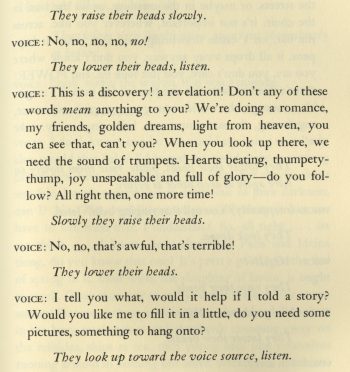
Coover’s narratives often use erotic forms to engender the unspeakable, be it the unseemly–actions unsuited for certain viewing audiences–or the unseen–female characters whose subjugation renders them, in some ways, non-existent. In his erotic novella Spanking the Maid, Coover writes from the perspective of a servant girl who moves through space as discreetly as possible, evaluating her environment, assessing how to best maneuver through the world, unheard “as she’s been taught.”
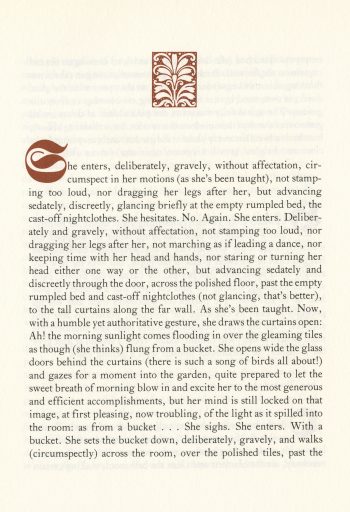
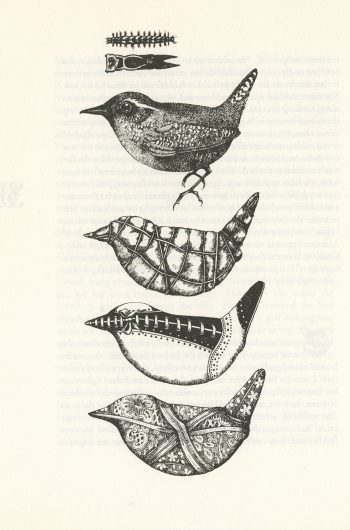
Thus, in addition to “trying on different roles,” Coover’s narratives and narrators outline their roles, expose their scripts, reveal their forms. Or, maybe more aptly, their forms reveal themselves, the strangeness of their shapes. The nothing of it all. “The infinite is all we have.”
For more information on Robert Coover and writers from the Modern Literature Collection, visit the MLC digital archive: Modern Literature Collection: The First Fifty Years.